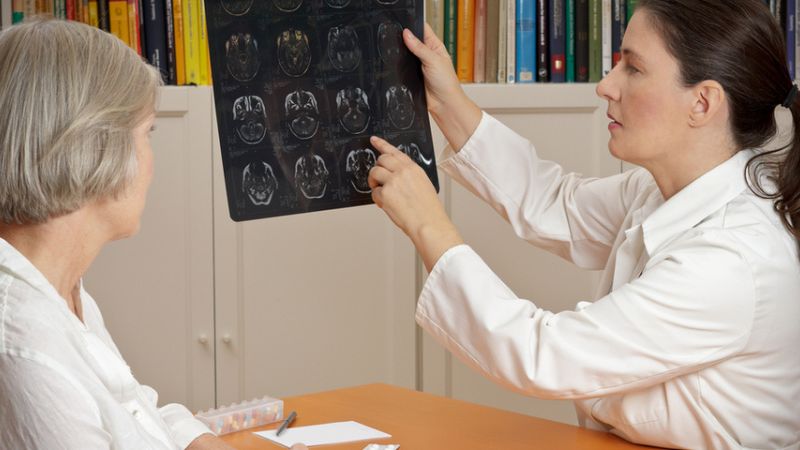According to the CDC, traumatic brain injury (TBI) is a major cause of death and disability in the U.S., as 153 people die from traumatic brain injuries every day. Brain injuries can be traumatic regardless of your age, yet for those aged 65 and older, these injuries are more traumatic. Death and hospitalization rates for fall-related traumatic brain injuries (TBIs) generally increase with age, as 4 in 5 TBI- related hospitalizations and deaths in older adults are caused by falls.
While many typically only think of physical injuries after a fall, they rarely take into account the serious consequence of traumatic brain injuries. Studies show that traumatic brain injury can lead to impaired thinking or memory, long-term cognitive, emotional and/or functional impairments later in life.
According to The Alzheimer’s Association, traumatic brain injuries can be instant or long-term depending on the severity of the fall or accident and can increase one’s risk of developing Alzheimer’s or dementia. Most traumatic brain injuries are caused by falls, car accidents, sports injuries, or explosive impacts.
The Range of Traumatic Brain Injuries
As with any injury, there are different levels of severity and risks, and that is especially true with brain injuries. Brain traumas can range from mild, moderate, to severe.
-
Mild brain injuries are commonly known as a concussion where symptoms appear shortly after and the effects are not permanent. This is the most common form of traumatic brain injury.
-
Moderate traumas cause unconsciousness that can last longer than thirty minutes and the effects can be long lasting.
-
Severe brain traumas cause you to lose consciousness for 24 hours or more with more serious and long-lasting health risks. This type of traumatic brain injury can have long-term side effects that make it difficult to fully recover.
Various and ongoing studies have shown that those with moderate to severe brain traumas are more at risk to develop mental illnesses, than those who have not experienced brain trauma.
Symptoms of Traumatic Brain Injuries To Be Aware Of
Should you experience any of the following, it is recommended that you seek medical treatment immediately:
-
Unconsciousness
-
Dizziness
-
Headache
-
Blurred Vision
-
Difficulty speaking
-
Nausea/vomiting
-
Difficulty retaining new information
-
Inability to remember the cause of injury
-
Disorientation
-
Changes in sleep patterns
-
Ringing of the ears
The majority of the symptoms above, including unconsciousness, dizziness, blurred vision and disorientation, can often result in a fall, especially for older adults.
Treatment for Traumatic Brain Injuries
The different types of brain traumas will require different types of treatment. While mild cases can be treated with at-home observation or a quick hospital stay, most severe cases of brain injury require inpatient rehabilitation. A physician will be able to put together the most effective treatment plan for your traumatic brain injury and it’s important to follow through on their recommendations for the best chance of a full recovery.
Additionally, with a Medical Guardian medical alert system, you will always be able to receive assistance, in in any emergency, including a slip or fall, or non-emergency, such as feeling dizzy or disoriented. With the push of a button, you or your loved ones will be connected to one of our highly- certified operators at our 24/7 U.S. monitoring centers through your device.
Brain disorders can develop over time so be proactive! Know the causes, symptoms, and risks and figure out a plan of treatment to ensure the best brain health you can. Remember, when an emergency strikes, your Medical Guardian alert device will save your life.

